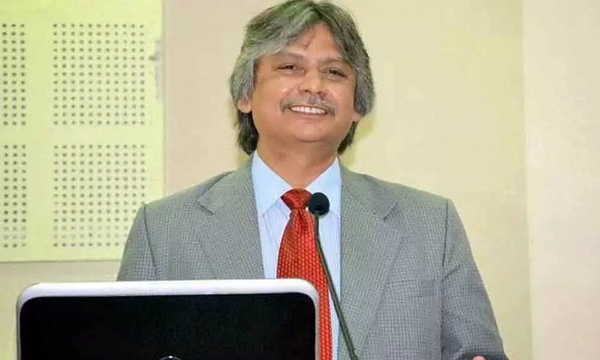New Delhi: The central government Tuesday appointed Michael Debabrata Patra as the new RBI Deputy Governor who will also steer the Monetary Policy Panel that takes decisions on the rate of interest regime. The new deputy governor in charge of monetary policy steps into his new role amidst hosts of perils of a 6-year high inflation and six-year low quarterly growth.
An Appointment Committee of the Cabinet order said, “The ACC has approved the appointment of Michael Debabrata Patra Executive Director of RBI to the post of Deputy Governor of RBI for a period of three years”.
Patra will replace Viral Acharya, who left office on July 23, 2019. He will take over as the fourth deputy governor at central bank and will handle the monetary policy portfolio.
The edge Patra holds are many as he is well versed with MPC and rate of interest decisions and also well known in the market. The markets are well acquainted with Patra’s views on the current economic environment.
In the last three policies of RBI, Patra has dropped his inflation hawkish guard and supported interest rate cuts to support growth. At the June meeting, Patra not only voted for a third interest rate cut but also called for fiscal support to the economy.
“At this juncture, monetary policy by itself cannot bring about a reinvigoration of economic activity. Monetary policy is taking the lead as the first line of defence, but a coordinated full throttle effort by all arms of macroeconomic management is the need of the hour,” he said.
At the latest meeting in December, Patra along with the rest of the committee voted for a pause in rate cuts in response. But there will be too many immediate challenges for the new deputy governor as well. First task is – he will have to balance the emerging growth-inflation dynamics. Retail inflation spiked to 7.35 per cent in December, highest in six years. It has surpassed the RBI’s upper-limit target, mainly due to spiralling prices of vegetables.
While RBI had decided against a repo rate cut in its December policy review, it would be interesting to see the central bank’s next move as inflation has been on the rise for three consecutive months. Recently, Government projections show the economy is set for 11-year drop in growth of 5 per cent in FY 20, RBI had already lowered its growth forecast to the same level earlier on deep slowdown concerns.
With average inflation for quarter nearly 200 basis points above RBI estimates, the market now expects status quo in February policy of the MPC, something that government may be not looking forward to. With inflation soaring, the yield on the benchmark 10-year bond rose as much as 10 basis points to 6.7 per cent, the most since December 5.
The central bank has also not been able to effect transmission of policy rate cuts through banking channels. It introduced external benchmarking for retail and SME floating rate loans on October 1 and is hoping to see improved transmission following that move.
